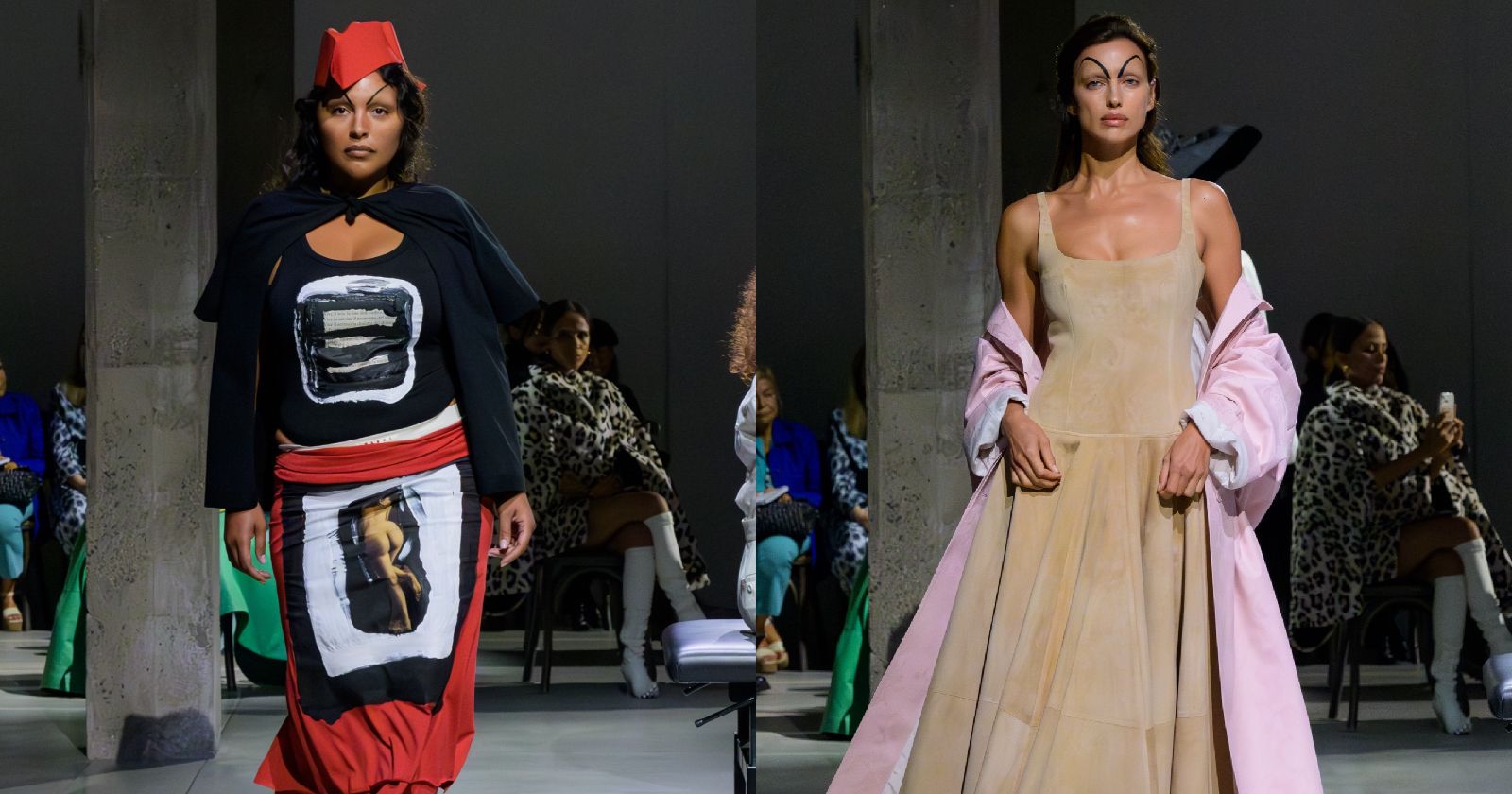
The most popular works of fiction in history follow the structure of the “hero’s journey.” From Alice in Wonderland to Luke Skywalker in Star Wars, each protagonist follows a series of precise stages that begin and end in the ordinary world, while the adventure takes shape in between. Yesterday afternoon, following the narrative structure most beloved by fantasy writers was Francesco Risso, who for the SS25 of Marni presented a personal reinterpretation of Lewis Carroll’s book on the runway. There were no talking cats, mad hatters, or twin figures in striped shirts and suspenders; the white rabbit chasing Marni’s Alice is beauty. The looks on the runway followed a very precise evolution, perfectly aligning with the structure of the hero’s journey. In the common world, Marni’s heroine wears buttoned-up shirts and blazers, suede trench coats and cigarette pants, heavy loafers, crossbody bags, and rounded-toe ballet flats. Occasionally, she lets herself be carried away by fantasy and dons sailor hats, superhero capes, and mermaid skirts, but she keeps her feet on the ground until the call to adventure arrives: the pursuit of the sublime.
To demonstrate that beauty is «a speed, not a destination», Marni enlisted the help of artist Dev Hynes, aka Blood Orange, who produced the show’s soundtrack. Seated in front of three pianos placed in the center of the showroom on Viale Umbria, Hynes and his colleagues Sharleen Chidiac and Adam Tendler performed live for the show. In an electrifying sonic crescendo, after a series of looks embodying ’80s elegance, featuring high-waisted pants and glossy shirts, hand-painted flowers on skirts and minidresses paved the way for the entrance into Marni’s fantastical realm. Draped jersey suits were decorated with pages of literature and hand-glued paintings; among the drawings were the profile of Dante Alighieri and a fawn—both the Florentine poet and Bambi, like Alice, get lost in a forest at some point in their stories. As the dresses with large red roses entered the runway, Hynes’ music intensified, and on the faces and heads of the models, accessories became increasingly larger and more humorous, from pirate hats and feathers to sunglasses as large as a fly’s eyes and pencil-drawn arched eyebrows extending above the forehead.
The models walked among the scattered chairs throughout the showroom without following a precise path, wandering around the room in search of something elusive. Then Marni reminded us that beauty is the center of this story, and that it was already there, fluttering from a mint green suede trench to a balloon skirt in frayed cotton, pausing for a moment on a black and white tailored suit before bouncing cheerfully onto floral prints in primary colors, joined by a touch of pink. At that point, Marni’s shimmering petals spread to every corner of the collection, from the pleats of skirts to the linings of trench coats. With one final grand push upwards, through three increasingly complex looks, Marni led us to the story’s climactic finale. Decorated with irregular plumage, strass petals wrapped around the bodies of the models in yellow, black, and blue. The red had become thin, the makeup more dramatic, and the hair teasing more pronounced. Thus, Risso’s Marni imagines the sublime, a journey that embraces decades and different aesthetics without prejudice, a woman who is essential and elegant, madly in love with her kitschy and chaotic friend, a never-ending story that winds and tangles and finds peace in the turmoil. The return to the ordinary world, the final stage of the traditional hero’s journey, is not included in Marni’s fairy tale, and it continues to buzz in the frenzy of the final act. After all, Marni never cared much about following the rules.
